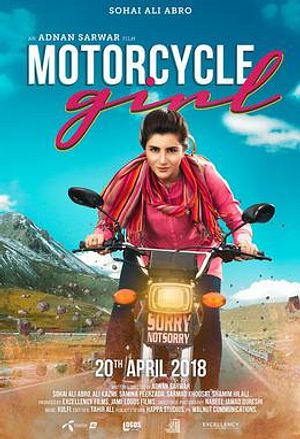Hundreds gather in line waiting for something special. The location is a cinema hall in the Pakistani city of Lahore. They are waiting in line to buy tickets for a film. As the people sit inside the cinema hall, a film starts that has the same name as a 2014 Jennifer Aniston film. But apart from the name, it is quite different: it has received critical acclaim and is a Pakistani film
Cake is a Pakistani film that stands out among other Pakistani films that have been released in the last decade. The director and writer of the film, instead of trying to cash in on the usual market strategy of adding things like a strong sense of patriotism or touching upon subjects common in Pakistan, goes experimental and transforms the film into a surprisingly remarkable success. Cake’s plot is simple. The film revolves around two sisters reuniting because of their father’s deteriorating health and secrets are revealed along the way. Yet the simple premise, well-executed, drew international attention, even The Guardian couldn’t ignore it.
The strong response to the film in its home country has sent an important message to the filmmakers of Pakistan: it is okay to experiment, break barriers and test the audience. The formula is risky and might not always work, but art has no boundaries and that is what Cake displays.
Despite tensions with neighboring India, the Indian film industry — known as Bollywood — enjoys a lot of popularity in Pakistan. Bollywood as compared to the Pakistani film industry (formerly Lollywood) is a huge industry and Pakistani cinemas generate more revenue through screenings of Bollywood films.
Pakistan’s native film industry for a long time had been ignored in its home country but in 2013 things started to slowly change. With the release of Waar, a cinematic revolution began. More and more films were released, film awards were introduced and people started going to the cinema for locally-made films. Prior to 2013, one or two films could make a mark and that was due to strong marketing (Khuda Kay Liye in 2007 and Bol in 2011, for example).
A month after Cake’s release, another film that didn’t have a mainstream Pakistani recipe opened in cinemas to critical acclaim. Motorcycle Girl is was a fictional account of a real woman, Zenith Irfan, who travels from Lahore to the Khunjerab Pass on a motorcycle to fulfill her late father’s dream.
While two films might not seem like such a big deal in huge markets like Hollywood or Bollywood, in Pakistan it is a different story. These two films released close together and the strong response from audiences has encouraged filmmakers in the country. If more films like Cake and Motorcycle Girl are made Pakistan, the country’s cinema industry will officially be on the right track.
Turyal Azam Khan is a Pakistani writer. He has written for The Daily Times and Dunya Blogs.













